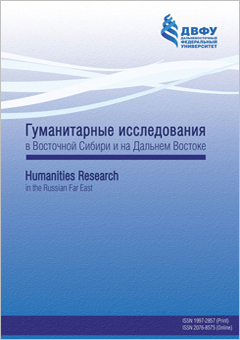Interpretations of the term "monoculture" before and after digital technologies
DOI:
https://doi.org/10.24866/1997-2857/2024-3/114-122Keywords:
monoculture, media culture, consumption, digimodernism, technofeudalism, streamingAbstract
The article is devoted to the analysis of the phenomenon of monoculture, chronologically divided into pre-digital and digital. Pre-digital monoculture is presented through the critical analysis of cultural consumption. Using the case of such cultural texts as Game of Thrones, Harry Potter and Star Wars, the author shows that pre-digital monoculture is a part of popular culture. It was the consumption of various symbols that marked the dominance of a cultural text in the pre-digital era. In an attempt to characterize the digital monoculture, the author refers to Alan Kirby’s theory of digimodernism and the theory of technofeudalism by J. Dean and Y. Varoufakis, also offering his own definition of the term.
Downloads
References
Анисимов В.А. Цифровой капитализм: к проблеме потребления медиакультуры в XXI в. // Вопросы философии. 2024. № 1. С. 37–46.
Афанасов Н.Б. Ускоренная рефлексивность – депрессивная социальность // Логос. 2023. Т. 33. № 6. С. 1–27.
Бодрийяр Ж. Общество потребления. М.: Республика; Культурная революция, 2006.
Дегтярев Е.О. Темные фигуры. Социально-философский анализ фильмов Джона Карпентера. М.: Издательский дом ВШЭ, 2023.
Джеймисон Ф. Постмодернизм, или Культурная логика позднего капитализма М.: Изд-во Института Гайдара, 2019.
Дин Д. Коммунизм или неофеодализм? // Логос. 2019. Т. 29. № 6. С. 85–116.
Егоров В.Е. Монокультура // Большая советская энциклопедия. URL: https://www.booksite.ru/fulltext/1/001/008/077/869.htm
Маркузе Г. Одномерный человек // Маркузе Г. Эрос и цивилизация. Одномерный человек: исследование идеологии развитого индустриального общества. М.: АСТ, 2002. С. 251–515.
Павлов А.В. Постпостмодернизм: как социальная и культурная теории объясняют наше время. М.: Дело, 2019.
Срничек Н. Капитализм платформ. М.: Издательский дом ВШЭ, 2019.
Chayka, K. Can monoculture survive the algorithm? URL: https://www.vox.com/the-goods/2019/12/17/21024439/monoculture-algorithm-netflix-spotify
Edmundson, M., 2009. Notes on the mono-culture. The Massachusetts Review, Vol. 50, no. 1/2, pp. 34–44.
Hassan, R. and Sutherland, T., 2017. Philosophy of media. New York: Routledge.
Heath, A. After trying the vision pro, Mark Zuckerberg says Quest 3 «is the better product, period». URL: https://www.theverge.com/2024/2/13/24072413/mark-zuckerberg-apple-vision-pro-review-quest-3
Herman, A. The very last piece of the TV monoculture. URL: https://www.theringer.com/2017/7/12/16078066/game-of-thrones-hbo-tv-monoculture-535f73ad5014
Jameson, F., 2002. The political unconscious: narrative as a socially symbolic act. London; New York: Routledge.
Kellner, D., 2020. Media culture: cultural studies, identity, and politics in the contemporary moment. London; New York: Routledge.
Kirby, A., 2009. Digimodernism: how new technologies dismantle the postmodern and reconfigure our culture. New York: Continuum.
Morozov, E., 2022. Critique of techno-feudal reason. URL: https://newleftreview.org/issues/ii133/articles/evgeny-morozov-critique-of-techno-feudal-reason
Rushkoff, D., 2013. Present shock: when everything happens now. New York: Current.
Thompson, B., 2024. An interview with Netflix co-CEO Greg Peters about strategy and execution. URL: https://stratechery.com/2024/an-interview-with-netflix-co-ceo-greg-peters-about-strategy
Varoufakis, Y., 2024. Technofeudalism: what killed capitalism. Brooklyn: Melville House.
Waetjen, J. and Gibson, T.A., 2007. Harry Potter and the commodity fetish: activating corporate readings in the journey from text to commercial intertext. Communication and Critical/Cultural Studies, Vol. 4, no. 1, pp. 3–26.
Downloads
Published
Issue
Section
License
Copyright (c) 2024 Владимир Алексеевич Анисимов

This work is licensed under a Creative Commons Attribution-NonCommercial-NoDerivatives 4.0 International License.














